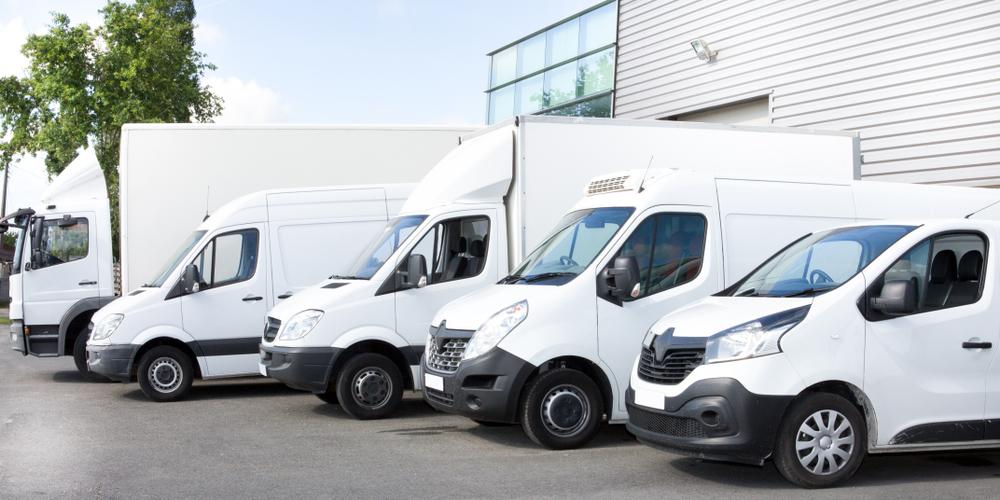
There is often confusion surrounding the distinctions between multi-purpose vehicles like vans, trucks, and SUVs.
While these automobiles share some overlapping characteristics and utilities, they are fundamentally different in their structural designs and intended purposes. Vans, trucks, and SUVs all serve the overarching function of transportation, shuttling people and goods from place to place.
However, their distinctive designs have evolved specifically to fulfill very separate niches within the industry. Vans maximize interior flexibility and passenger or cargo volume.
Trucks emphasize robust frames and powerful towing capacities suited for heavy hauling. SUVs inhabit a middle ground by blending the qualities of trucks and cars, affording both comfortable passenger hauling and modest off-roading.
In this post, you will learn about the key differences between vans, trucks, and SUVs based on their histories, technical makeups, and specialized roles. The distinctions between their types, sizes, and intended uses will be clarified.
Understanding the Basics
Let's start with basic definitions and a brief history of each vehicle type. A van is a covered wagon designed primarily for transporting goods or people. Their origins can be traced back to covered wagons used on farms in the 19th century to move crops and livestock.
Over time, vans evolved into box-like vehicles with rear seats used by businesses and industries for cargo hauling and passenger transport like a Mercedes-Benz Sprinter made with advanced technologies.
Trucks, on the other hand, were designed from the start for hauling heavy loads over long distances. Some of the earliest truck designs date back to the late 19th century. Their primary function has always been commercial cargo transport whether it be moving freight between cities or products to and from stores and warehouses.
Today trucks come in many forms from gigantic tractor-trailers to pickup trucks, but their fundamental role is heavy-duty hauling and towing, although some have rear seats for carrying passengers.
SUVs emerged in the mid-20th century as a cross between passenger cars with rear seats and off-road vehicles. They adopted the unibody construction of cars but with enhanced ground clearance and rugged features for navigating rough terrain.
While retaining passenger comforts like ample seating, SUVs also offered all-wheel or four-wheel drive for improved traction in slippery or off-paved conditions. Their versatility made them popular for both highway travel and occasional adventurous driving.

The Van in Detail
When looking more closely, vans can be divided into different types based on their specific uses as all vans are generally considered multi-purpose vehicles. Cargo vans are the most basic form focused solely on transporting goods with their empty interior space.
Passenger vans add seating and windows for conveniently moving groups of people. Then there are custom vans that are converted or purpose-built for specialized applications like mobile offices, food trucks, ambulances, and more.
The sheer versatility of vans has made them indispensable for countless industries. Catering companies rely on vans daily for delivering food and equipment to events. Moving companies couldn’t operate without cargo vans for hauling furniture.
Even florists use vans to transport fresh-cut flowers and bulky plant arrangements. The growth of van ownership directly contributes to rising van traffic on roads worldwide. Their commercial importance is undeniable as small businesses especially benefit from vans’ adaptability.
Trucks and Their Domain
Examining truck design reveals its engineering for heavy-duty cargo work. Frame construction with a separated chassis and engine provides robust strength over rough conditions. Commercial trucks feature reinforced suspensions and powerful engines to haul even the largest loads safely. Their open cargo bays and towing connections maximize capacity.
As for types, pickup trucks are offering open beds for carrying equipment and materials. Then there are larger commercial box trucks and tractor-trailers that transport freight nationwide and have enormous engines. Specialized trucks like dump trucks use hydraulic lifts to release loads.
While not built for comfort, trucks' utility far outweighs passenger comfort given their role in significant industries like construction, shipping, and more.
SUVs - A Category of Their Own
Sports Utility Vehicles (SUVs) gained widespread popularity due to their blend of car-like driving technology with added off-road traction and big engines making them multi-purpose vehicles. Their unibody construction with strut-type suspensions provides compliant rides despite rugged tires. Roomy interiors comfortably seat families while offering versatile cargo space behind rear seats. Storage compartments and tech features match luxury passenger vehicles.
Four-wheel or all-wheel drive gives SUVs surefootedness on slippery surfaces or lightly trailing paths. Their increased ground clearances and protective underbody skid plates shield vulnerable components when traversing rougher backcountry.
Such combined on and off-road capabilities make SUVs practical choices for varied terrains and active lifestyles involving camping, fishing, hiking, and other outdoor activities.
Van vs. Truck vs. SUV - Key Differences and Similarities
Let's now compare the key attributes of these vehicles:
- Purpose: Vans transport cargo/people, trucks haul heavy loads, SUVs balance comfort and capability, and make great commercial vehicles and recreational vehicles.
- Design: Vans have box-like cargo areas, trucks have separated chassis, and SUVs have integrated passenger car platforms.
- Capacity: Trucks maximize towing/hauling, vans prioritize interior space, and SUVs balance passenger/cargo room. Trucks and vans should be used as delivery vehicles due to the increased cargo space. Also depending on the number of rear seats, the number of passengers each vehicle can carry will vary.
- Performance: Trucks excel with significant loads, vans are nimble in traffic, and SUVs adeptly handle varied surfaces.
While they all serve transportation needs, their specialized designs fulfill fundamentally different functional roles depending on cargo/towing demands or passenger comfort priorities. Understanding these nuanced distinctions is pivotal for buyers.

Choosing the Right Vehicle for Your Needs
Many factors influence which type suits you best:
- Personal use prioritizes comfort, cargo options, rear seats, and fuel efficiency. SUV versatility often works well.
- Commercials need
- to evaluate regular cargo sizes/weights and fleet maintenance costs. Vans commonly prove the most cost-effective.
- Heavy hauling requires frame-built strength and powerful towing. Pickup trucks and larger commercial trucks fit this role.
- Varied terrain ability demands ground clearance and four-wheel grip. SUV all-wheel drive provides balanced pavement and light-trail competence.
Testing vehicles with your specific cargo/passenger loads is wise. Research manufacturer towing/seating specs. Consider ownership costs like insurance and repairs. Matching real needs to the appropriate vehicle prevents future regrets.
Final Thoughts
While similar in functioning as motor vehicles, vans, trucks, and SUVs each fill very distinct niches through dedicated designs. Vans adapt interior space superbly, trucks construct rugged platforms for heavy labor, and SUVs marry passenger comfort with outdoor flexibility.
Understanding how they differ helps buyers and observers alike properly categorize these staple vehicle types serving varied functions across industries and lifestyles worldwide. With clarified distinctions in mind, consumers can confidently select the option that optimally matches their transportation and operational requirements.
Ship Your Van, Truck, or SUV with A1 Auto Transport
Whether you need to relocate a cargo van for your small business, transport a pickup truck full of tools across states, or ship an SUV for your annual family road trip, A1 Auto Transport can handle it. As a top-rated auto transport company, we have years of experience safely and efficiently shipping all types of light, medium, and heavy-duty commercial and personal vehicles.
Let A1 Auto Transport be your trusted partner for all your vehicle shipping needs. Get instant rates on shipping your van, pickup truck, or SUV. Our customer service team is standing by to schedule your transport and ensure a seamless delivery experience from start to finish.






 Share on Facebook
Share on Facebook Share on LinkedIn
Share on LinkedIn Share on Twitter
Share on Twitter




 Google
Google  Instagram
Instagram  Trustpilot
Trustpilot 



